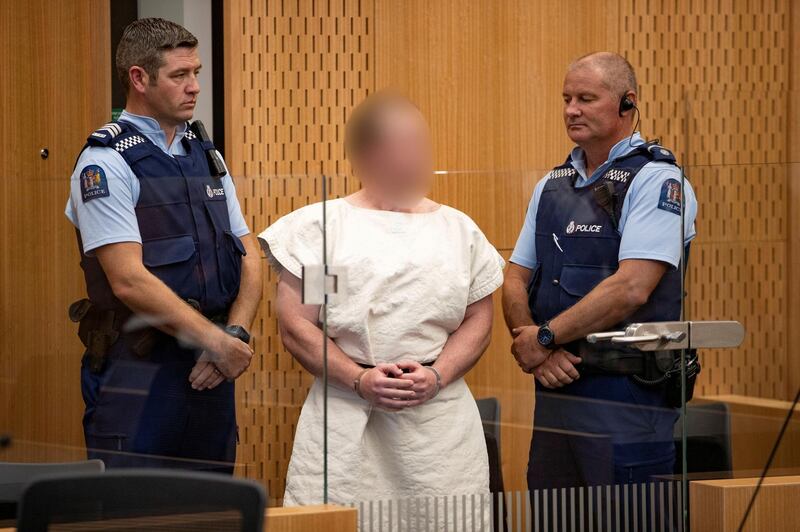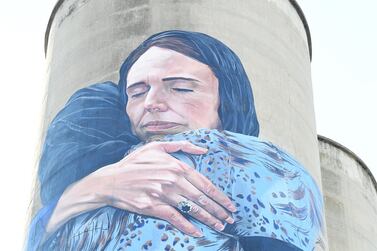The man accused of the attacks on mosques in Christchurch, New Zealand, in March was formally charged with terrorism on Tuesday, the first time the relevant legislation is being used to prosecute someone.
The accused, 28, was arrested shortly after the mass shootings on March 15 at two mosques. Fifty-one people were killed and the massacre was live-streamed on Facebook.
The accused was also charged with an additional count of murder after a Turkish man wounded in the shooting died in hospital earlier this month, bringing the number murder charges to 51. He faces 40 counts of attempted murder.
Using the country's terrorism suppression legislation, passed in 2002 after the 9/11 attacks in the US, he was charged with engaging in a terrorist act. If convicted, he faces a life sentence. As it is the first time the law is being used, it will be a test case for the New Zealand courts.
Meanwhile, New Zealand police said they held a meeting attended by more than 200 victims and their relatives on Tuesday afternoon.
"Police have met with victim’s families and survivors of the March 15 Christchurch attack to inform them of new charges which have been filed," they said in a statement attributed to Commissioner of Police Mike Bush.
"Police are committed to providing all the support necessary for what will be a challenging and emotional court process to come for the victim’s families and survivors of the attack."
Prime Minister Jacinda Ardern called the attack an act of terrorism within hours of it taking place.
The attacks sent shock waves through New Zealand. Within a month of the attacks, the country reformed its gun laws, passing a bill banning most military-style firearms.
Legal experts said any conviction for engaging in terrorism would not make much practical difference, given murder charges attract a higher maximum penalty, but were likely added to reflect the traumatic effect the attacks had on the wider society
"The terrorism act charge is about recognising the harm to the community and the harmed individuals who were present but who weren't physically injured or killed," said Graeme Edgeler, a barrister and legal commentator.
The accused is due to appear in court again on June 14, after being remanded in custody in April and ordered to undergo a psychiatric assessment to determine if he is fit to stand trial.
Mohammed Hussein Mostafa, whose father was killed at Al Noor Mosque, said he was glad the event was being treated as a terrorist act, especially given the Muslim community had been often been "vilified" by media and politicians as possible perpetrators of violence since the 9/11 attacks.
"It will cement in people's minds that terrorism has no race or religion," he said. "I'm happy that he will be made an example of ... so that such an atrocity may never happen again on our shores."
Ms Ardern has also ordered a top-level inquiry into the attacks.
The incident sparked debate over the role of social media companies in policing online extremism. The killer is thought to have been radicalised on fringe social media sites and used Facebook's live video-streaming service to broadcast the attacks.
Last week, Ms Ardern and France's President Emmanuel Macron hosted a forum in Paris on how to tackle online extremist content. Facebook said it would tighten its rules on live video, introducing a one-strike policy.






